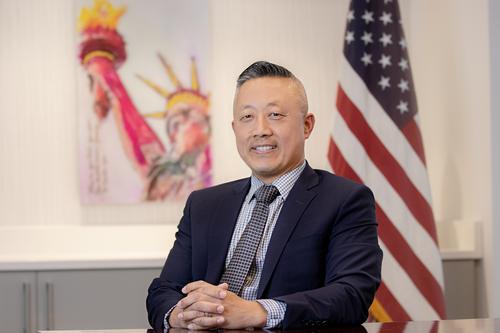 Employees of international organizations come to the United States on G visas for many reasons. In some cases, they are involved in long-term projects or business deals that keep them in the U.S. for quite some time. The G visas 1-4 allow these individuals to be accompanied by eligible family members. The last type of G visa, the G-5 visa also allows for personal employees or domestic workers to accompany the family and continue in their service. In 2015, the government issued 711 of these visas for a wide variety of employees.
Employees of international organizations come to the United States on G visas for many reasons. In some cases, they are involved in long-term projects or business deals that keep them in the U.S. for quite some time. The G visas 1-4 allow these individuals to be accompanied by eligible family members. The last type of G visa, the G-5 visa also allows for personal employees or domestic workers to accompany the family and continue in their service. In 2015, the government issued 711 of these visas for a wide variety of employees.
What Is a G-5 Visa?
A G-5 visa is a non-immigrant visa which grants attendants, servants, or personal employees of a G1-G4 visa holder to enter the U.S. to continue their service. A G-5 visa would also grant entrance to the immediate family members of the principal G-5 visa holder. To qualify under this type of a visa, an individual must be either:
- An attendant who is paid from the public funds of the government or international organization.
- A personal employee paid by the primary G visa holder’s personal accounts and employed only in a domestic capacity.
Some of the more common examples of positions held by approved G-5 visa holders include cook, butler, maid, housekeeper, nanny, chauffeur, or companion to the elderly.
Applying for a G-5 Visa
There are a number of steps that must be followed to obtain a G-5 visa, and the application process must be completed outside the U.S through your local consulate. To apply for a G-5 visa, it is necessary to:
- Obtain a valid passport.
- Fill out and file the appropriate paperwork.
- Attend an interview with a consular officer.
- Have an official employment contract in English signed by both employer and employee. If the employee does not speak English, they will need to sign contract copies in both English and their native language.
The employment contract is an important piece of documentation. This contract must address the issues of duties, hours, pay rate, overtime, transportation to and from the country, and an agreement to abide by all local laws.
Entrance and Exit Stipulations Do Apply to G-5 Visa Holders
For the primary G visa holder and his immediate family members, there are fewer restrictions to their entry into and exit from the U.S. Those who will enter the country on a G-5 visa, however, must participate in the US-VISIT program. This program requires non-citizens to offer their fingerprints and photograph when obtaining a visa and entering the country.
G-5 Visa Holders Are Protected by U.S. Labor Laws
Like any other person employed in the U.S., the holders of a G-5 visa are entitled to certain protections under the law. Once in the country, the attendant or domestic worker are protected from abuse and exploitation. The primary G visa holder is expected to act in a manner consistent with all local and federal laws, this includes hours, pay, overtime, and more. Additionally, domestic workers need not at any time surrender his or her passport to the employer. The U.S. government takes a very firm stance on human trafficking and works to ensure that all employees can maintain personal rights in this country.
If a G-5 visa holder feels his or her rights are being violated, they are encouraged to report the behavior to appropriate officials. A G-5 visa holder will not be stripped of their visa or punished by the government for exercising the rights given to them upon entrance to the U.S.
Do You Need Help In Getting Your Green Card Or Visa in Virgina, Maryland or Washington D.C.?
If you're trying to obtain a Green Card or Visa you need to speak with an experienced immigration attorney as soon as possible. Please contact us online or call our Vienna, Virgnia office directly at 703.991.7978 or our Rockville, Maryland office at 301.637.5392 to schedule your case consultation.

